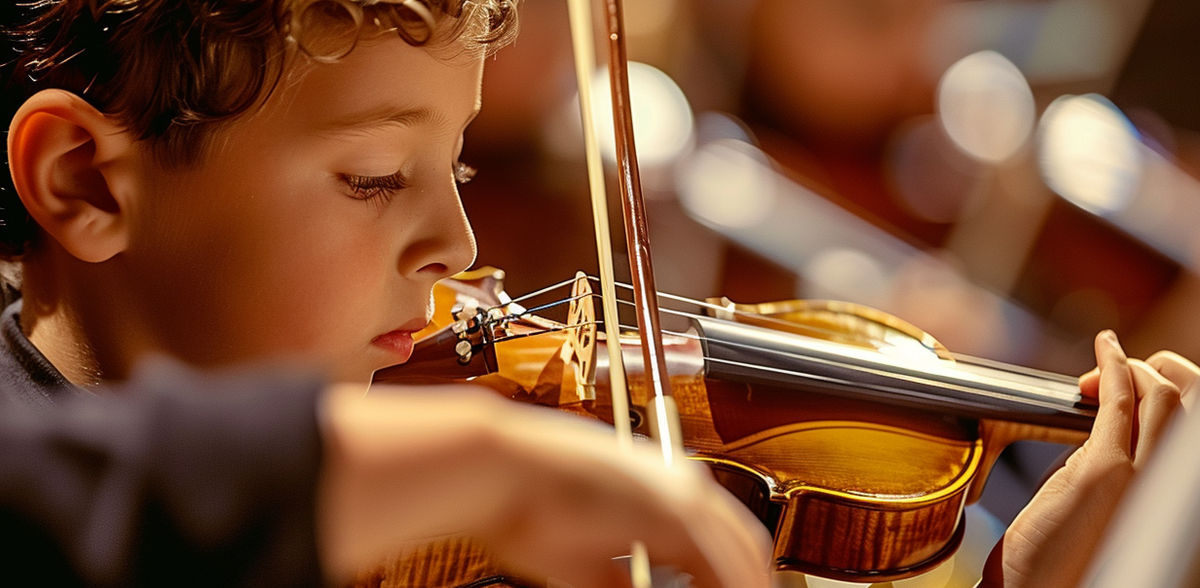Is there a connection between active music-making and health?
Advertisement
Researchers from the NAKO health Study have investigated the connection between the musical activity of amateur musicians and their mental and physical health. They also focused in particular on the question of how the pandemic has affected the mental health of musically active people. The evaluation of the surveys of NAKO participants showed that the self-reported mental health of singers in particular has deteriorated during the pandemic.
Singing, playing instruments and listening to music can have a positive effect on health. "So far, however, there have been few findings from epidemiological studies that deal with the effects of amateur music on individual mental and physical health," says Dr. Lilian Krist, head of the Berlin-Mitte study center at Charité. "We therefore examined socio-demographic and health-related factors in 6,717 adults in the NAKO Health Study and also took a closer look at the impact of the coronavirus pandemic in 2020 on the mental health of 3,666 musically active people compared to non-musically active people."
Of the approximately 6,700 respondents to the NAKO health study conducted by the Berlin-Mitte study center, 53 percent had been musically active at least once in their lives, and seven percent had played music all their lives. A more detailed analysis of the data showed that musically active people were more likely to have a higher level of education and were less likely to be overweight compared to musically inactive people.
During the first wave of the COVID-19 pandemic in 2020, a number of contact minimization measures were introduced in Germany. These also affected amateur musicians. Another study by NAKO researchers with almost 3,600 respondents examined the link between musical activity and mental health before and during the pandemic. Of the respondents, 22.1 percent were musically active, of which 15.1 percent sang and 14.5 percent played an instrument. The participants were asked about their individual mental health using standardized questionnaires, which allowed conclusions to be drawn about symptoms of depression or anxiety disorder.
"Our study results show that people who sang frequently were already less mentally stable than non-musicians before the pandemic. In addition, their deterioration in mental well-being due to depressive phases or anxiety during the pandemic was even more pronounced compared to non-musicians," says Professor Dr. Heiko Becher from the Institute of Global Health at Heidelberg University Hospital (UKHD). "Instrumentalists were - according to their self-reported data - slightly less mentally stressed during the pandemic than non-musicians, albeit only slightly, which indicates a possible positive effect of playing instruments on mental health."
Note: This article has been translated using a computer system without human intervention. LUMITOS offers these automatic translations to present a wider range of current news. Since this article has been translated with automatic translation, it is possible that it contains errors in vocabulary, syntax or grammar. The original article in German can be found here.
Original publication
Heiko Becher, Lilian Krist, Juliane Menzel, Isabel Fernholz, Thomas Keil, Gunter Kreutz, Alexander Schmidt, Fabian Streit, Stefan N. Willich, Cornelia Weikert; "Music-Making and Depression and Anxiety Before and During the COVID-19 Pandemic—Results From the NAKO Cohort Study in Germany"; International Journal of Public Health, Volume 69, 2024-6-24
Juliane Menzel, Gunter Kreutz, Hans-Christian Jabusch, Heiko Becher, Lilian Krist, Thomas Keil, Friederike Borngräber, Alexander Schmidt, Stefan N. Willich, Isabel Fernholz, Cornelia Weikert; "Musical activity in a subsample of the German National Cohort study"; Scientific Reports, Volume 14, 2024-6-18























































